Happy Earth Day from The Farmlink Project!
Celebrating Earth Day allows us to reflect on what the Earth means to us and how we can change our lifestyles to better care for our planet. So today, as The Farmlink Project reflects on our organization’s relationship with Earth, we want to discuss one of the biggest culprits behind climate change: food waste.
The problem with food waste is that extreme overconsumption and production occurs in high-income countries, whereas a lack of infrastructure contributes to drastic food spoilage and waste in low-income countries. It is estimated that ⅓ of all food produced in the world goes to waste. From growing food, to packing and shipping it, the food production process is lengthy and complex. The process releases millions of tonnes of greenhouse gasses into the atmosphere with every step. In fact, “the carbon footprint of U.S. food waste is greater than that of the airline industry.” According to the Food and Agriculture Organization of the United Nations, food waste accounts for about 8 percent of all greenhouse emissions worldwide. If food waste were a country, it would be the third largest emitting country in the world.

While these statistics appear bleak, not all hope is lost. Part of The Farmlink Project’s mission is to target and reduce food waste’s carbon footprint worldwide. By redistributing and transporting food –food that would otherwise go to waste– to places in need within the U.S., we reduce the amount of food that would otherwise sit in a landfill decomposing a releasing methane, a greenhouse gas 25x more potent than carbon dioxide.
Beyond supporting The Farmlink Project, there are so many ways in which you, (yes, you!), can make a difference in reducing food waste in your everyday life. In honor of Earth Day, here are some awesome ways you can harvest hope in your own home:
- Store your produce properly so it doesn’t spoil before you use it.
- Make the most of your ‘scraps.’ Stems, leaves, peels, and skins are usually edible, and delicious if prepared correctly. Instead of tossing your carrot tops, make a creamy pesto. Save your onion skins and lemon peels for flavorful soup stock. Leftover herbs? Whip up a chimichurri.
- If you can’t eat it, compost it. Composting reduces methane emissions, and it also creates a product that can be used to grow more food. Explore at-home composting or check out your local options for compost pickup.
Thank you for joining us in our fight to reduce food waste and heal the earth!
< Back
Happy Earth Day from The Farmlink Project!
Celebrating Earth Day allows us to reflect on what the Earth means to us and how we can change our lifestyles to better care for our planet. So today, as The Farmlink Project reflects on our organization’s relationship with Earth, we want to discuss one of the biggest culprits behind climate change: food waste.
The problem with food waste is that extreme overconsumption and production occurs in high-income countries, whereas a lack of infrastructure contributes to drastic food spoilage and waste in low-income countries. It is estimated that ⅓ of all food produced in the world goes to waste. From growing food, to packing and shipping it, the food production process is lengthy and complex. The process releases millions of tonnes of greenhouse gasses into the atmosphere with every step. In fact, “the carbon footprint of U.S. food waste is greater than that of the airline industry.” According to the Food and Agriculture Organization of the United Nations, food waste accounts for about 8 percent of all greenhouse emissions worldwide. If food waste were a country, it would be the third largest emitting country in the world.

While these statistics appear bleak, not all hope is lost. Part of The Farmlink Project’s mission is to target and reduce food waste’s carbon footprint worldwide. By redistributing and transporting food –food that would otherwise go to waste– to places in need within the U.S., we reduce the amount of food that would otherwise sit in a landfill decomposing a releasing methane, a greenhouse gas 25x more potent than carbon dioxide.
Beyond supporting The Farmlink Project, there are so many ways in which you, (yes, you!), can make a difference in reducing food waste in your everyday life. In honor of Earth Day, here are some awesome ways you can harvest hope in your own home:
- Store your produce properly so it doesn’t spoil before you use it.
- Make the most of your ‘scraps.’ Stems, leaves, peels, and skins are usually edible, and delicious if prepared correctly. Instead of tossing your carrot tops, make a creamy pesto. Save your onion skins and lemon peels for flavorful soup stock. Leftover herbs? Whip up a chimichurri.
- If you can’t eat it, compost it. Composting reduces methane emissions, and it also creates a product that can be used to grow more food. Explore at-home composting or check out your local options for compost pickup.
Thank you for joining us in our fight to reduce food waste and heal the earth!
Happy Earth Day!
Happy Earth Day from The Farmlink Project!
Celebrating Earth Day allows us to reflect on what the Earth means to us and how we can change our lifestyles to better care for our planet. So today, as The Farmlink Project reflects on our organization’s relationship with Earth, we want to discuss one of the biggest culprits behind climate change: food waste.
The problem with food waste is that extreme overconsumption and production occurs in high-income countries, whereas a lack of infrastructure contributes to drastic food spoilage and waste in low-income countries. It is estimated that ⅓ of all food produced in the world goes to waste. From growing food, to packing and shipping it, the food production process is lengthy and complex. The process releases millions of tonnes of greenhouse gasses into the atmosphere with every step. In fact, “the carbon footprint of U.S. food waste is greater than that of the airline industry.” According to the Food and Agriculture Organization of the United Nations, food waste accounts for about 8 percent of all greenhouse emissions worldwide. If food waste were a country, it would be the third largest emitting country in the world.

While these statistics appear bleak, not all hope is lost. Part of The Farmlink Project’s mission is to target and reduce food waste’s carbon footprint worldwide. By redistributing and transporting food –food that would otherwise go to waste– to places in need within the U.S., we reduce the amount of food that would otherwise sit in a landfill decomposing a releasing methane, a greenhouse gas 25x more potent than carbon dioxide.
Beyond supporting The Farmlink Project, there are so many ways in which you, (yes, you!), can make a difference in reducing food waste in your everyday life. In honor of Earth Day, here are some awesome ways you can harvest hope in your own home:
- Store your produce properly so it doesn’t spoil before you use it.
- Make the most of your ‘scraps.’ Stems, leaves, peels, and skins are usually edible, and delicious if prepared correctly. Instead of tossing your carrot tops, make a creamy pesto. Save your onion skins and lemon peels for flavorful soup stock. Leftover herbs? Whip up a chimichurri.
- If you can’t eat it, compost it. Composting reduces methane emissions, and it also creates a product that can be used to grow more food. Explore at-home composting or check out your local options for compost pickup.
Thank you for joining us in our fight to reduce food waste and heal the earth!
.png)

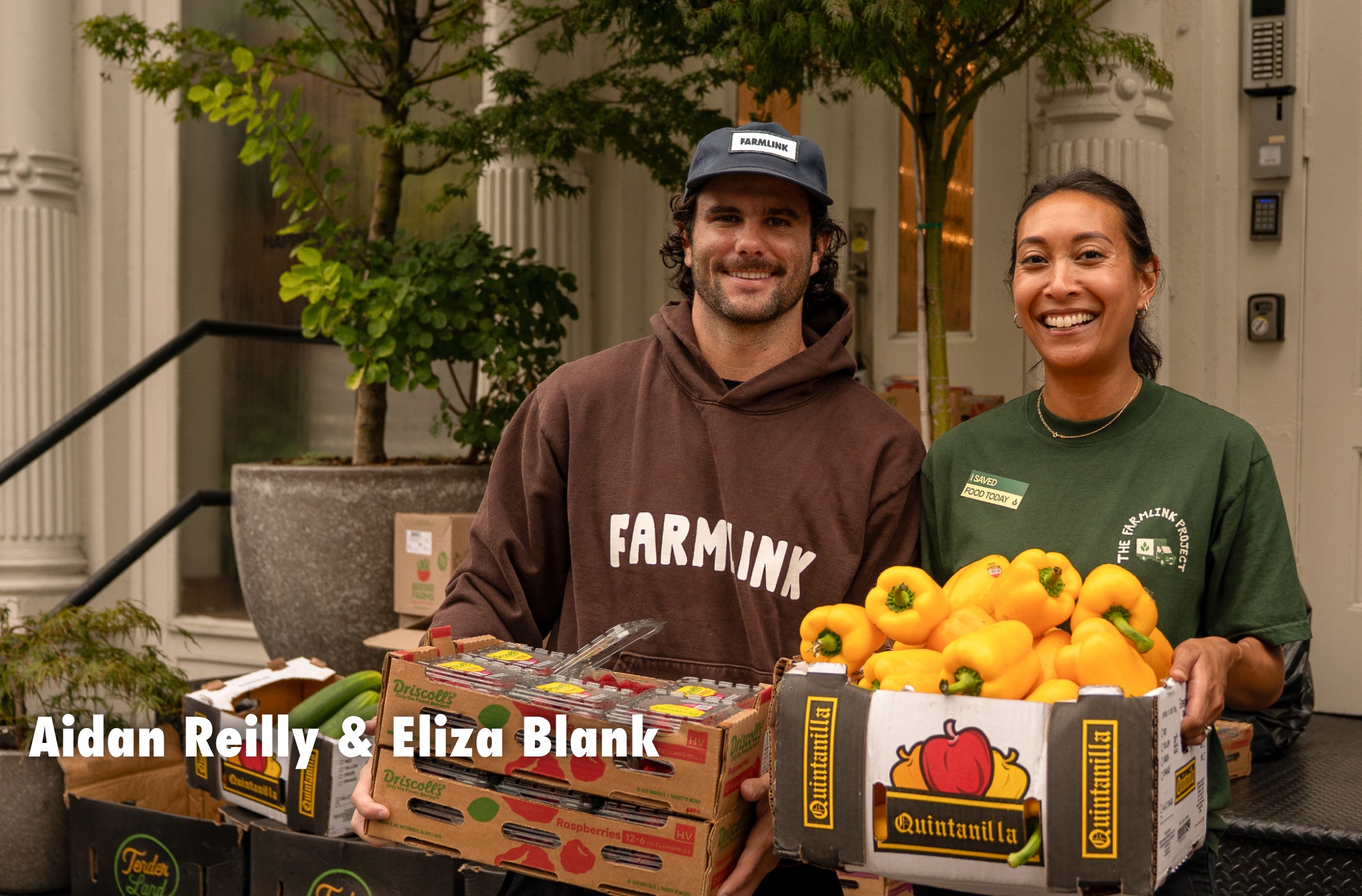
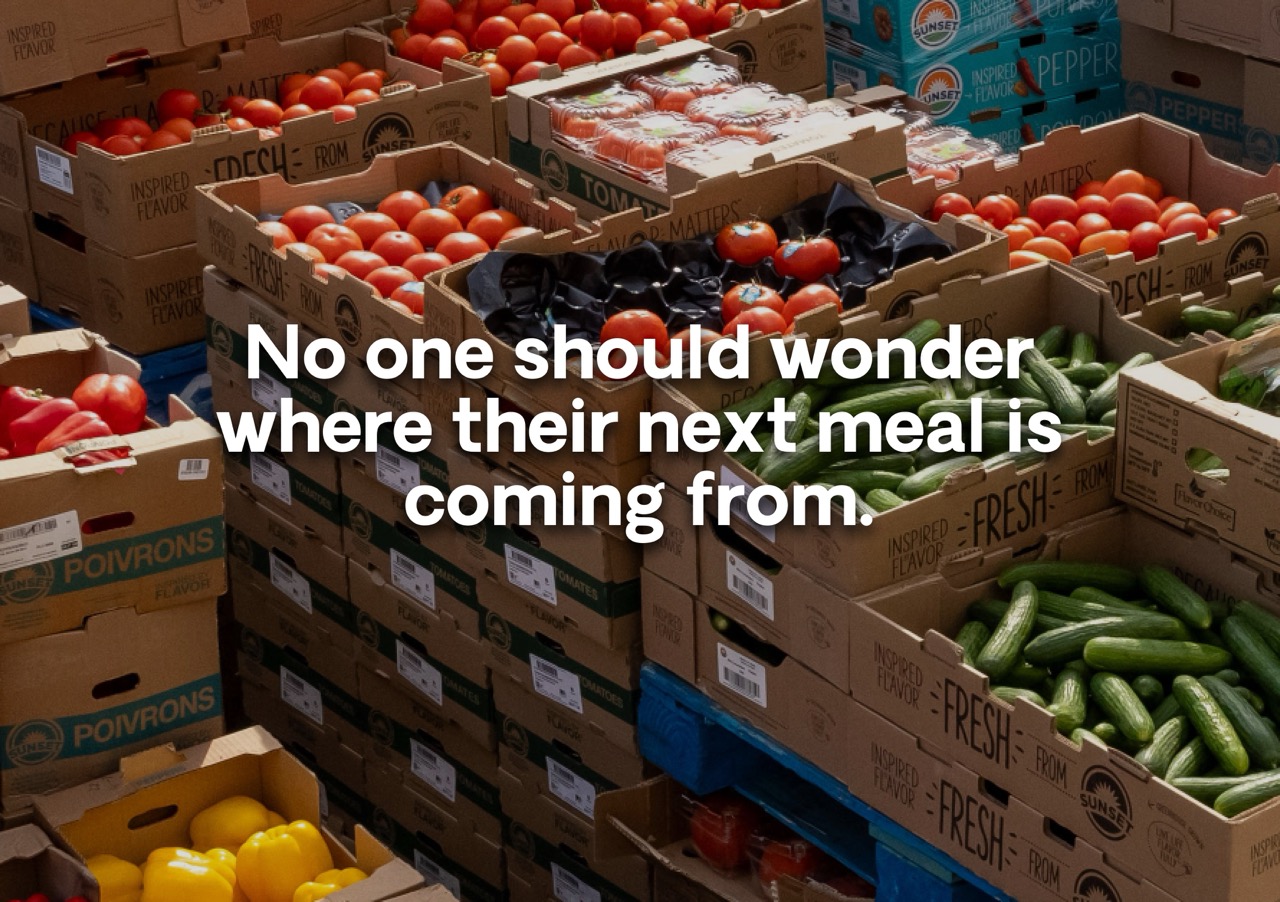
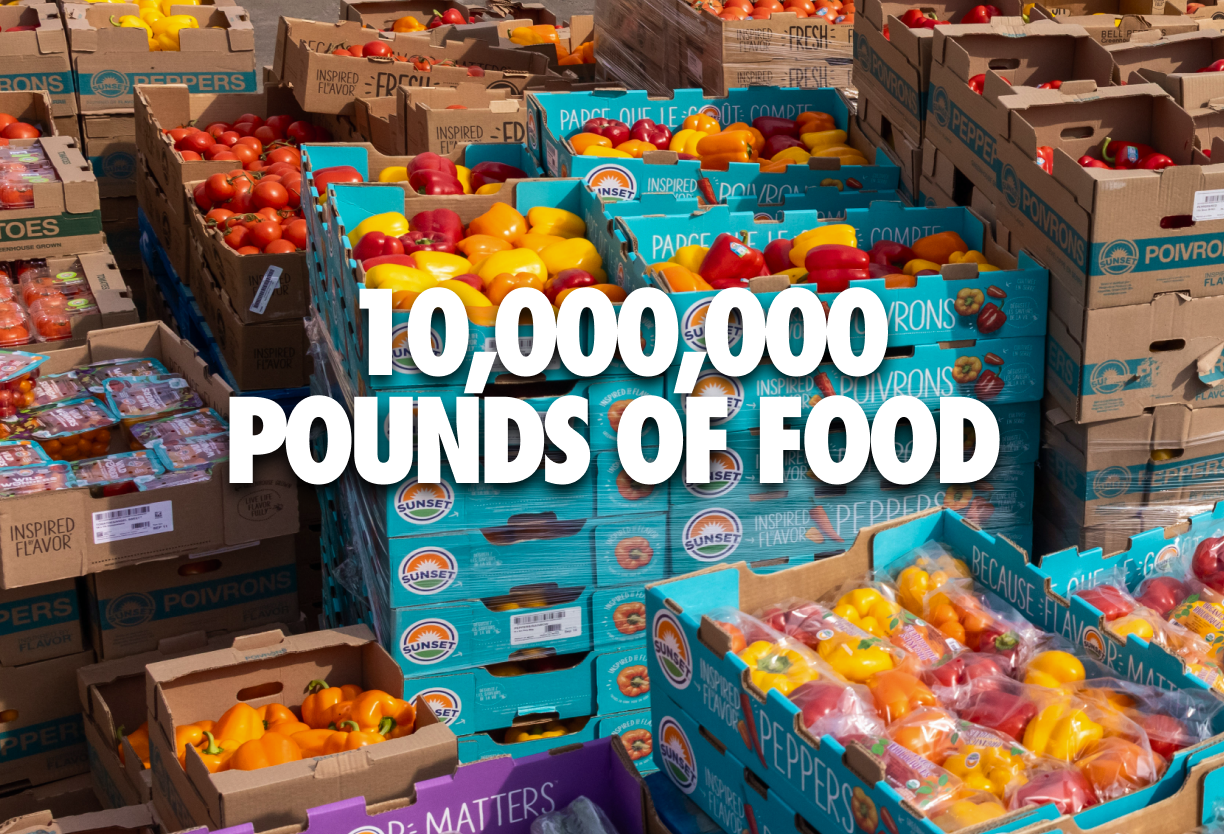

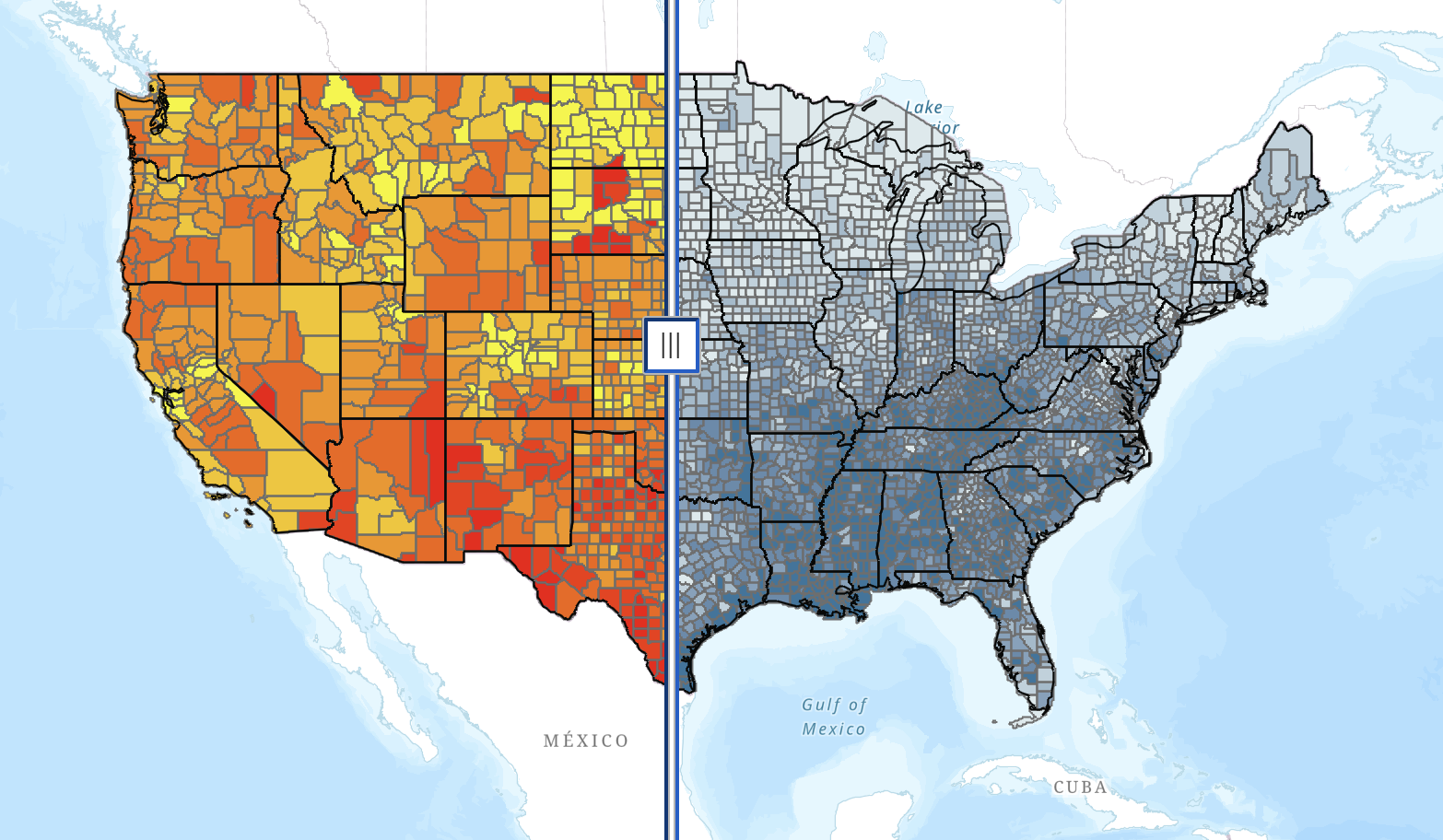
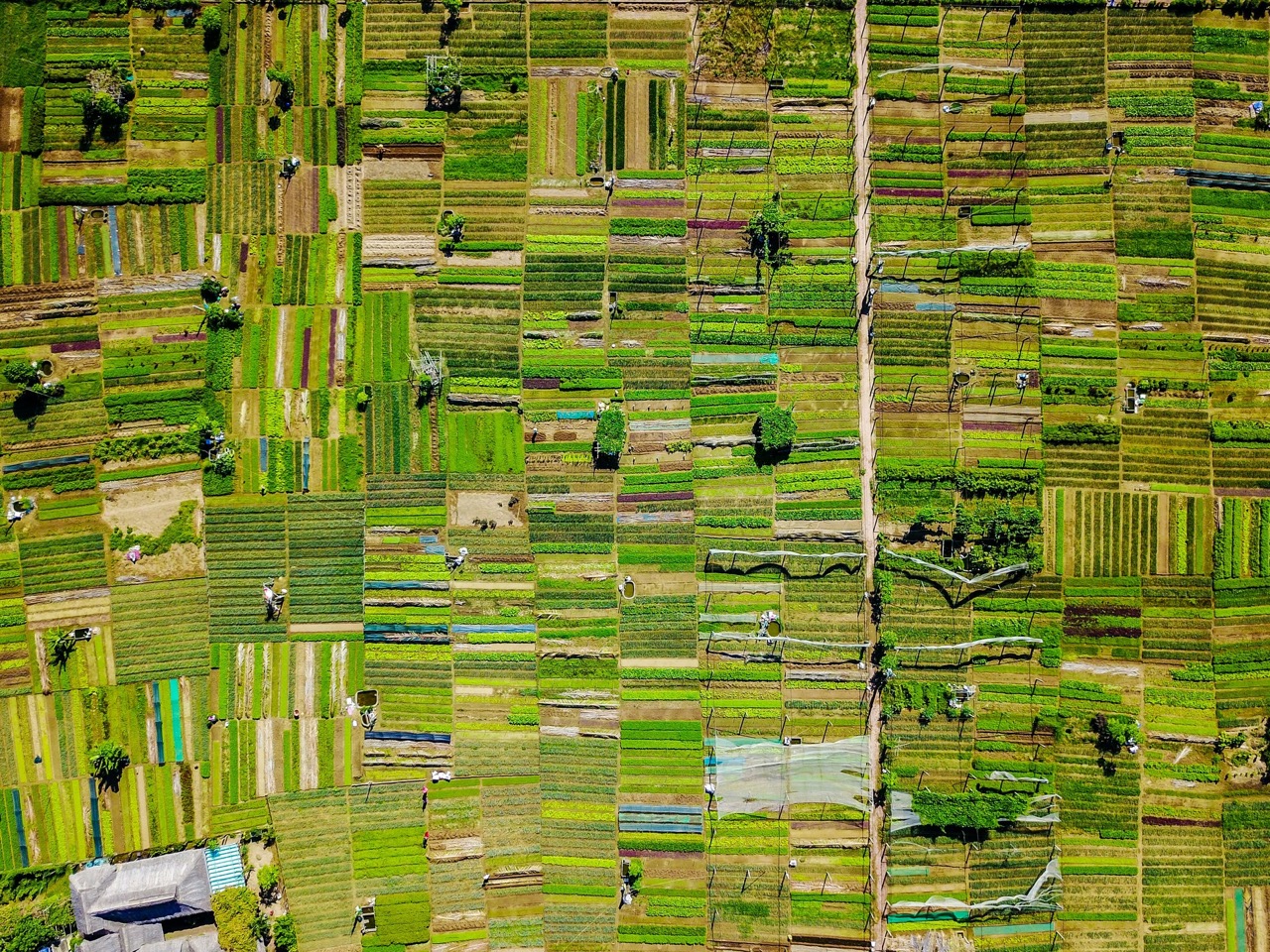
.svg)
.svg)
.svg)